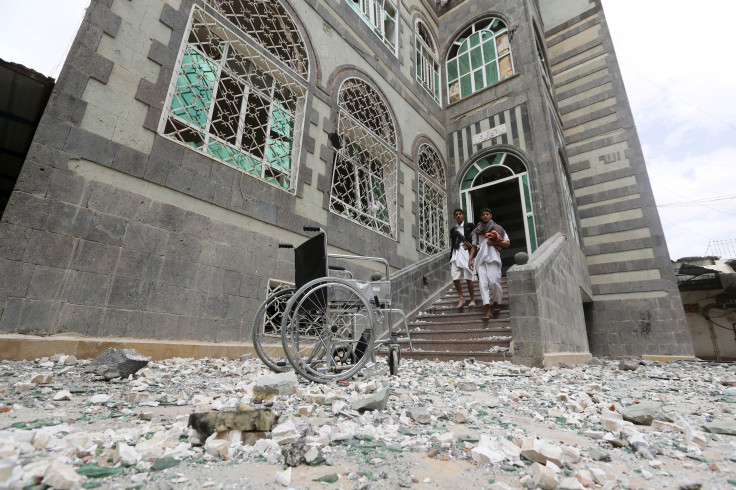Yemen Crisis: US Warns It Won’t Tolerate Iran Supporting Houthis; Tehran Says Airstrikes Must End

The United States government warned Thursday that it would not tolerate Iran supporting the Shiite Houthi rebels in Yemen while Iranian Supreme Leader Ayatollah Ali Khamenei condemned the Saudi Arabia-led airstrikes in Yemen as “criminal acts.”
Criticizing Tehran’s move of supporting the Houthi fighters, who now control most of Yemen’s military, U.S. Secretary of State John Kerry said that Washington would not accept any foreign interference in the Yemen conflict, which has forced the beleaguered President Abed Rabbo Mansour Hadi to flee his country and take refuge in Saudi Arabia.
“There have been -- there are, obviously -- flights coming from Iran. Every single week there are flights from Iran and we've traced it and know this,” the Agence France-Presse (AFP) quoted Kerry as saying to PBS television. “Iran needs to recognize that the United States is not going to stand by while the region is destabilized or while people engage in overt warfare across lines, international boundaries in other countries.”
Washington has backed the Saudi-led air offensive in Yemen to halt the advances of the Iran-allied Houthis in the country. The U.S. announced earlier this week that it had extended its support for the Arab coalition airstrikes, accelerating arms shipments and strengthening intelligence sharing with Riyadh.
Meanwhile, Iran’s Khamenei said Thursday that the air campaign against Yemen’s Houthis must end. “This move is not acceptable in the region and I would warn that they must stop these criminal acts in Yemen,” AFP quoted Khamenei as saying.
Khamenei’s defiant remark came a day after Iran reportedly deployed two warships -- a navy destroyer and another vessel – near Yemen, marking Tehran’s first overt military involvement in the Yemen crisis.
While Saudi Arabia has accused Iran of aiding the rebels in Yemen to eventually establish a pro-Iran state, the Iranian foreign ministry had insisted that Tehran wanted an immediate end to the fighting, which, according to the World Health Organization, had killed at least 560 people since mid-March.
© Copyright IBTimes 2024. All rights reserved.












